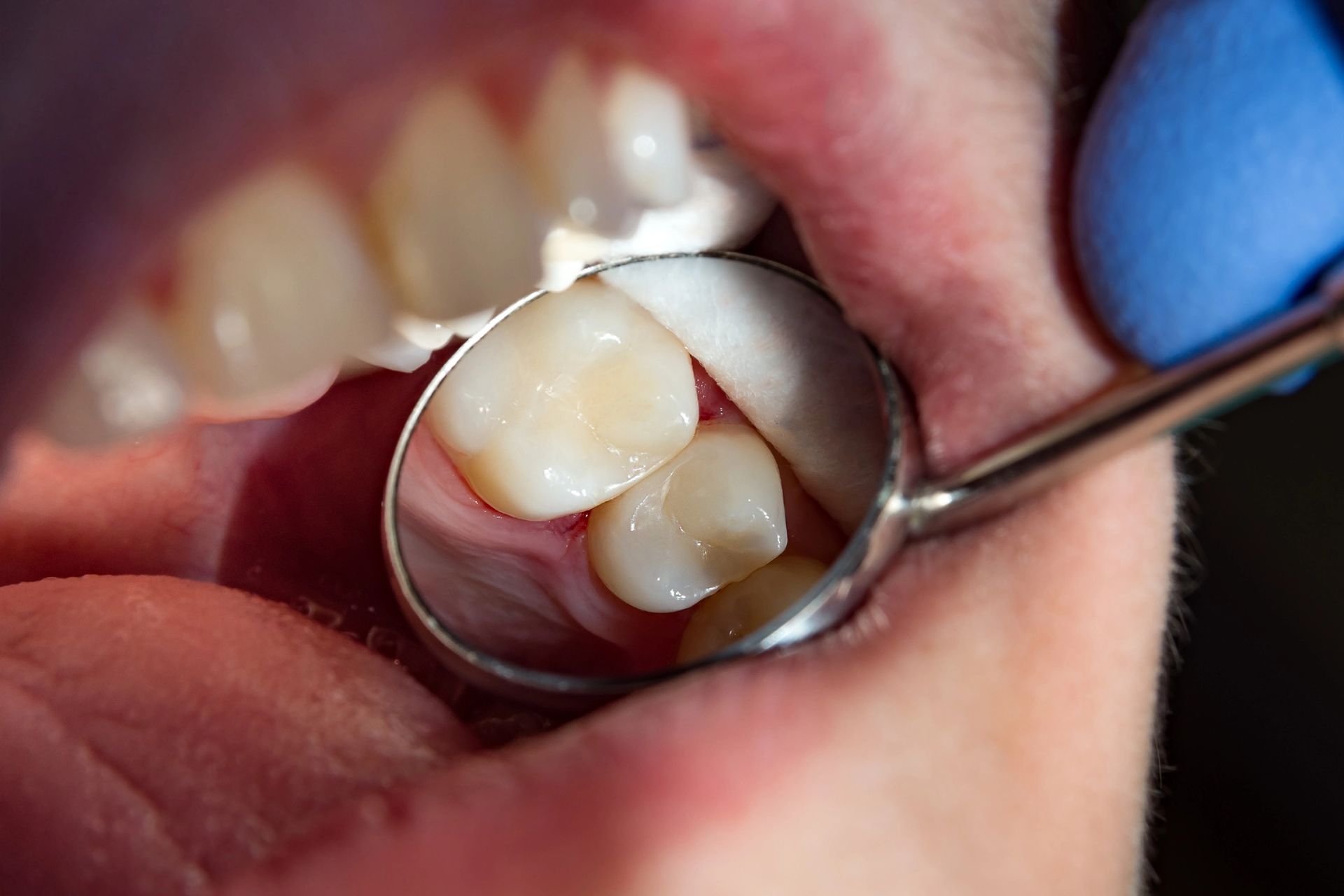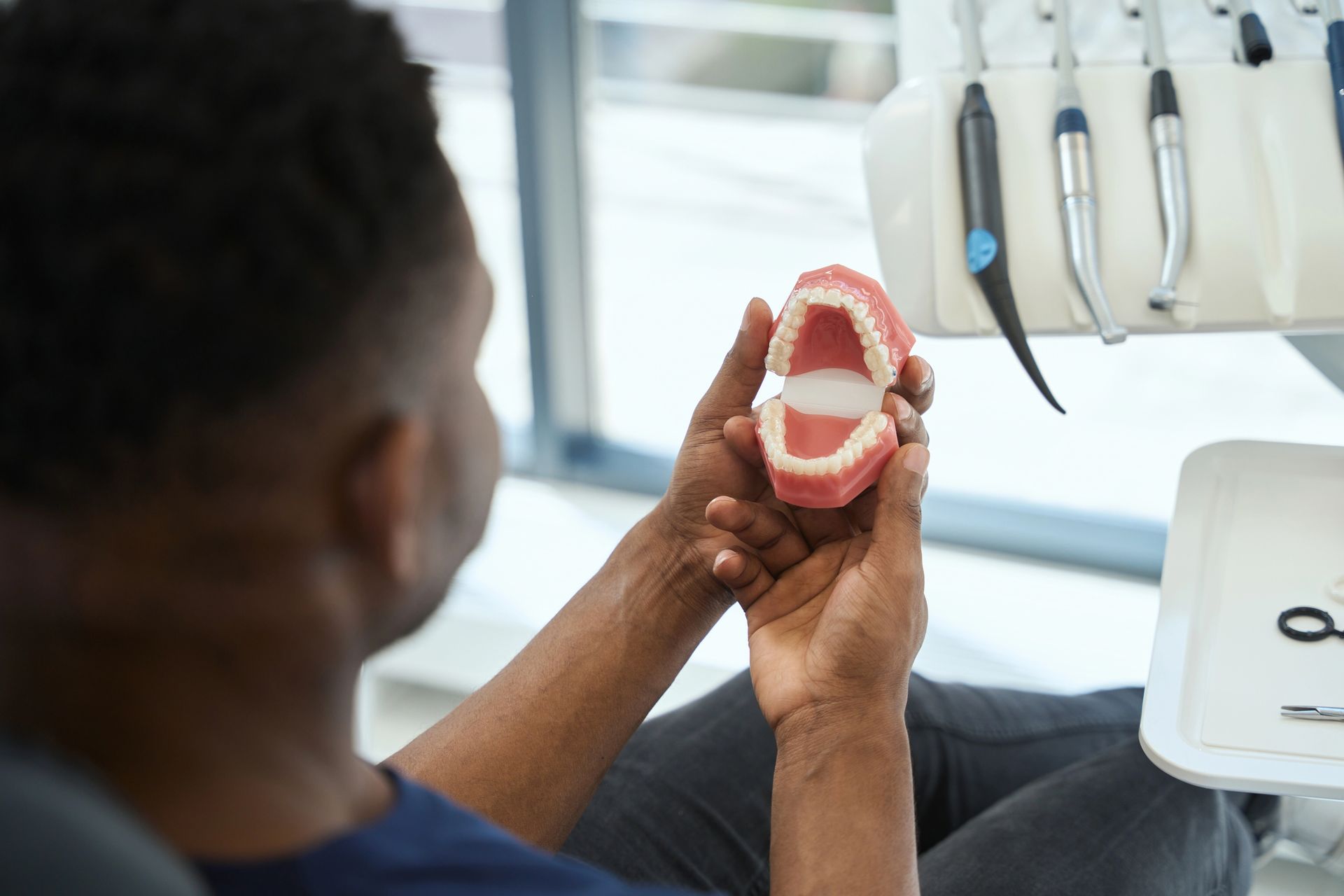
How Long Do Zirconia Crowns Last?
Zirconia crowns are renowned for their durability and strength, making them a popular choice for dental restorations. On average, zirconia crowns can last anywhere from 10 to 15 years, depending on various factors such as oral hygiene practices and the individual's lifestyle. The robust nature of zirconia material contributes to its longevity, providing a reliable solution for those seeking long-term dental restoration options. Understanding how long do zirconia crowns last can help individuals set realistic expectations for their dental care. While zirconia crowns are designed to withstand the pressures of daily use, their lifespan can be influenced by several factors, including the patient's oral habits and overall dental health. Regular dental check-ups and maintaining good oral hygiene can play a significant role in extending the life of these crowns. If you ever find yourself in a situation where your crown becomes dislodged, you might find it helpful to read more about what steps to take by visiting our page on Dental Crown Fell Off What to Do Next to Protect Your Tooth Factors affecting crown longevity The longevity of zirconia crowns can be influenced by several factors, which play a crucial role in determining how long do zirconia crowns last. One of the primary factors is the individual's oral hygiene practices. Regular brushing and flossing can help maintain the integrity of the crown by preventing plaque buildup and gum disease, which can compromise the crown's stability. Additionally, the skill and experience of the dental professional who places the crown can significantly impact its durability. A well-fitted crown is less likely to experience issues such as chipping or loosening over time. Another important factor is the patient's lifestyle habits. For instance, those who engage in teeth grinding or clenching may experience a shorter lifespan for their zirconia crowns due to the excessive pressure exerted on the dental work. Dietary choices also play a role; consuming hard or sticky foods can lead to wear and tear on the crown. Furthermore, regular dental check-ups are essential for monitoring the condition of the crown and addressing any potential issues early on. For those interested in exploring options for dental crowns, you can find more information about Affordable Dental Crowns Columbia by visiting our Affordable Dental Crowns Columbia page. Importance of Regular Dental Check-Ups Understanding how long do zirconia crowns last involves recognizing the crucial role of regular dental check-ups in maintaining their longevity. These appointments allow dental professionals to monitor the condition of your crowns, ensuring they remain in optimal shape and function. Regular check-ups can help identify any potential issues early, such as wear or damage, which might affect the lifespan of your zirconia crowns. By keeping up with these visits, you contribute to the overall health of your dental work and ensure that your zirconia crowns continue to serve you well over time.Role of Oral Hygiene Practices The longevity of zirconia crowns is significantly influenced by the role of oral hygiene practices. Maintaining a consistent and thorough oral care routine can help ensure that zirconia crowns last as long as possible. Regular brushing and flossing are essential to prevent plaque buildup, which can lead to gum disease and affect the stability of the crowns. Additionally, routine dental check-ups play a crucial role in monitoring the condition of the crowns and addressing any potential issues early on. Understanding how long do zirconia crowns last involves recognizing the impact of daily oral hygiene habits on their durability. For those in Columbia seeking more information, Design Dentistry Columbia offers insights into maintaining dental health, and you can learn more by visiting your local Columbia Dentist.
Impact of Dietary Habits
Dietary habits can significantly influence how long zirconia crowns last. Consuming a diet high in sugary foods and acidic beverages may contribute to the wear and tear of dental restorations, including zirconia crowns. These dietary choices can lead to an increased risk of decay around the crown margins, potentially compromising their longevity. On the other hand, a balanced diet that supports overall oral health can help maintain the integrity of zirconia crowns over time. Understanding the relationship between diet and dental health is essential for those looking to maximize the lifespan of their zirconia crowns.Influence of Teeth Grinding
Teeth grinding, also known as bruxism, can significantly impact how long zirconia crowns last. This involuntary habit exerts excessive pressure on dental restorations, including zirconia crowns, potentially leading to premature wear or damage. While zirconia is renowned for its durability and strength, the constant grinding motion can compromise its longevity over time. Understanding the effects of teeth grinding is crucial when considering how long zirconia crowns last, as it highlights the importance of addressing underlying dental habits that may affect their lifespan.Professional Cleaning Frequency
Understanding the professional cleaning frequency is essential when considering how long do zirconia crowns last. Regular dental check-ups play a crucial role in maintaining the longevity of zirconia crowns. During these visits, dental professionals can assess the condition of the crowns and perform necessary cleanings to prevent plaque buildup and other potential issues. While the specific frequency of professional cleanings may vary based on individual needs, maintaining a consistent schedule with your dentist ensures that zirconia crowns remain in optimal condition, contributing to their durability and lifespan.Signs of Crown Wear and Tear
Understanding the signs of wear and tear on zirconia crowns is essential for anyone curious about how long do zirconia crowns last. Over time, you might notice subtle changes such as slight discoloration or a dulling of the crown's surface, which can indicate natural aging. Additionally, small chips or cracks may appear, especially if the crown has been exposed to excessive force or grinding. These signs can serve as indicators that the crown is experiencing normal wear, which is a factor in determining its longevity. Regular dental check-ups can help monitor these changes and assess the overall condition of your zirconia crowns.htmlWhen to Consult a Dentist
Understanding how long do zirconia crowns last is essential for maintaining optimal oral health. While zirconia crowns are known for their durability and longevity, regular dental check-ups are crucial to ensure they remain in good condition. If you notice any discomfort, changes in bite, or visible damage to your crown, it may be time to consult a dentist. Regular professional evaluations can help identify potential issues early, ensuring that your zirconia crowns continue to function effectively and maintain their aesthetic appeal over time.Conclusion
Understanding how long do zirconia crowns last is essential for maintaining a healthy smile. For more information, call 803-408-7163 or [read reviews on Google Maps](https://maps.app.goo.gl/Mn6Pt8Sw7v1e67Za8).

Are you curious about the different types of dental veneers and wondering how long they last? Typically, dental veneers can last anywhere from 10 to 15 years, depending on various factors such as maintenance and material quality. Understanding these factors can help you appreciate the durability and lifespan of dental veneers.
How Long Do Dental Veneers Last?
The average lifespan of dental veneers is a common concern for many individuals considering this cosmetic dental solution. Typically, dental veneers can last anywhere from 10 to 15 years, depending on various factors such as the type of material used and the individual's oral hygiene practices. Porcelain veneers are known for their durability and resistance to staining, often outlasting composite veneers, which may require replacement sooner. Understanding the longevity of dental veneers can help individuals make informed decisions about their dental care.
When asking "How long do dental veneers last?" it's important to consider the materials used in their construction. The choice between porcelain and composite materials can significantly impact the lifespan of the veneers. Porcelain veneers are generally more durable and aesthetically pleasing, while composite veneers offer a more cost-effective solution with a shorter lifespan. For more detailed information on the materials used in dental veneers, you can explore our article on What Are Dental Veneers Made Of? Key Materials Explained.
Factors Affecting Veneer Longevity
The question of "How long do dental veneers last?" is influenced by several factors that can vary from person to person. One of the primary considerations is the material used in the veneers. Porcelain veneers, for instance, are known for their durability and resistance to staining, which can contribute to a longer lifespan compared to other materials. Additionally, the skill and experience of the dental professional applying the veneers play a crucial role in ensuring their longevity. Proper application and fitting can significantly reduce the risk of chipping or detachment over time.
Another important factor is the individual's oral hygiene practices and lifestyle choices. Regular dental check-ups and maintaining good oral hygiene can help extend the life of dental veneers. Habits such as teeth grinding or using teeth as tools can negatively impact their durability. Furthermore, dietary choices, such as consuming foods and beverages that stain or damage teeth, can also affect how long veneers last. For more information on dental veneers, you can visit our page on Columbia Veneers.
Types of Veneers and Durability
When considering the question, "How long do dental veneers last?" it's essential to understand the different types of veneers available and their durability. Dental veneers typically come in two main types: porcelain and composite resin. Porcelain veneers are known for their strength and natural appearance, often lasting between 10 to 15 years with proper care. On the other hand, composite resin veneers are generally more affordable but may have a shorter lifespan, usually around 5 to 7 years. The durability of each type can vary based on factors such as oral hygiene practices and lifestyle choices, which can influence how long dental veneers last for each individual.
Maintenance and Veneer Lifespan
When considering how long dental veneers last, it's essential to understand the role of maintenance in their lifespan. Dental veneers are designed to be durable, but their longevity can be influenced by how well they are cared for over time. Regular dental check-ups and proper oral hygiene practices are crucial in maintaining the appearance and function of veneers. While veneers are resistant to stains and damage, neglecting oral health can lead to issues that may shorten their lifespan. On average, dental veneers can last anywhere from 10 to 15 years, but this can vary based on individual habits and care routines. For those interested in learning more about dental veneers and their maintenance, Design Dentistry Columbia offers insights into these aspects. To explore further, visit your local Columbia Dentist.
Signs of Veneer Wear and Tear
Over time, dental veneers may begin to show signs of wear and tear, which can affect their appearance and functionality. Common indicators include discoloration, where the veneer may lose its original shade and appear dull or stained. Chipping or cracking is another sign, often resulting from regular use or accidental impact. Additionally, veneers might start to feel loose or become misaligned, which can be noticeable when speaking or chewing. These signs are natural as veneers age and are subjected to daily activities, highlighting the importance of being aware of their condition over time.
Comparing Veneers to Other Options
When considering the question, "How long do dental veneers last?" it's essential to compare them with other dental options. Veneers are known for their durability and aesthetic appeal, often lasting several years with proper care. In contrast, other dental solutions may offer different lifespans and benefits, depending on the material and application. While some alternatives might require more frequent replacements or adjustments, veneers provide a balance of longevity and visual enhancement that appeals to many seeking a lasting smile transformation. Understanding these differences can help in making informed decisions about dental care.
Veneer Replacement Frequency
When considering the question, "How long do dental veneers last?" it's important to understand that veneer replacement frequency can vary based on several factors. Generally, dental veneers are designed to be durable and can last anywhere from 10 to 15 years, depending on the material used and the individual's oral hygiene practices. Over time, veneers may require replacement due to wear and tear, changes in the underlying tooth structure, or aesthetic preferences. Regular dental check-ups can help monitor the condition of veneers and determine when replacement might be necessary.
Impact of Oral Habits on Veneers
When considering how long dental veneers last, it's important to understand the role that oral habits play in their longevity. Everyday actions such as chewing on hard objects, grinding teeth, or using teeth as tools can significantly impact the lifespan of veneers. These habits can lead to chips, cracks, or even complete detachment of the veneers from the teeth. Additionally, poor oral hygiene practices can contribute to the deterioration of the underlying tooth structure, which may affect the stability and appearance of the veneers over time. Therefore, maintaining mindful oral habits is crucial for preserving the integrity and aesthetic appeal of dental veneers.
Professional Care for Veneers
Understanding how long dental veneers last is essential for anyone considering this popular cosmetic dental solution. Professional care plays a crucial role in maintaining the longevity and appearance of veneers. Regular visits to a dental professional ensure that your veneers are in optimal condition, as they can identify any potential issues early on. These check-ups are vital for preserving the integrity of the veneers and ensuring they continue to enhance your smile for years to come. By prioritizing professional care, you contribute significantly to the lifespan of your dental veneers, allowing you to enjoy their benefits over an extended period.
Conclusion
Understanding how long dental veneers last can help you make informed decisions about your dental care. For more information, feel free to call 803-408-7163 or check out the reviews on Google Maps.







